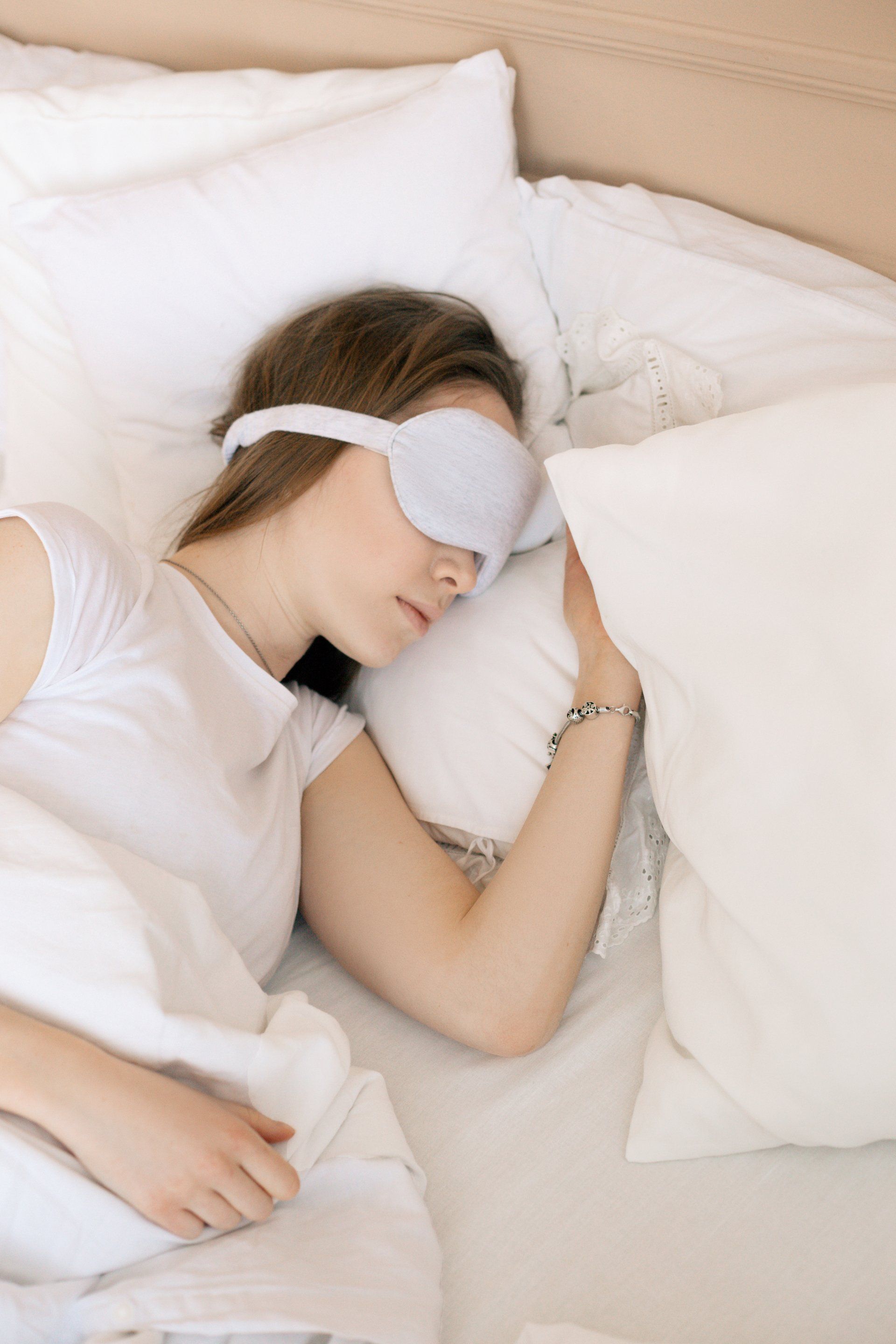Learning Centre
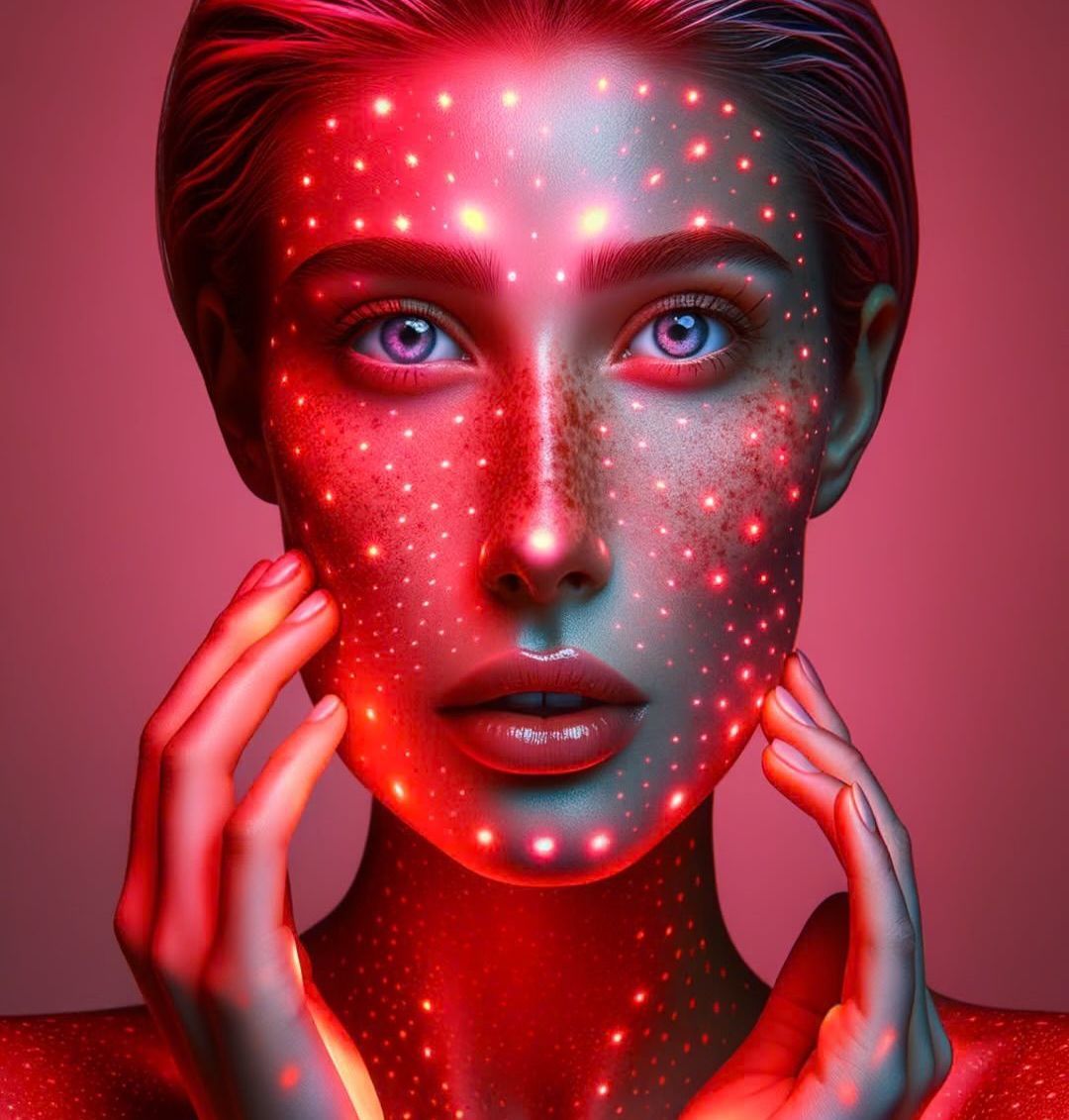
Rosacea, a complex skin condition marked by facial redness, swelling, and sometimes acne-like bumps, has puzzled many with its fluctuating symptoms and triggers. Understanding its pathophysiology reveals a landscape where vascular reactivity, inflammatory pathways, and environmental factors intersect, leading to the chronic, visible signs many struggle with. Enter the realm of Red Light Therapy (RLT), a groundbreaking approach that complements traditional treatments, targeting rosacea’s multifaceted nature at its core. RLT operates by delivering specific wavelengths of light deep into the skin, without heat or UV exposure, to reduce inflammation, enhance circulation, and promote cellular repair. This process, known as photobiomodulation, directly addresses the inflammatory and vascular components of rosacea, offering relief and improving skin appearance. Redjuvenate Medical’s NovoThor treatment, now available at Clinicity in London, harnesses the power of RLT in a whole-body approach. It’s not just an innovative method to soothe rosacea symptoms but also a complementary strategy enhancing the efficacy of conventional treatments. By improving cellular health and reducing oxidative stress, NovoThor supports the skin’s resilience against common triggers like sunlight, stress, and extreme temperatures. Integrating NovoThor into your rosacea care routine can bridge the gap between managing symptoms and achieving lasting improvements. It’s an invitation to explore a holistic path to skin health, one that harmonizes with your existing treatment plan for optimal results. Join us at Redjuvenate Medical to experience the transformative potential of NovoThor for rosacea and beyond. Your journey towards balanced, healthier skin begins with us. Embrace the future of rosacea care today. Share this breakthrough with those on their path to clearer, calmer skin .

In the quest for accelerated healing and recovery, Redjuvenate Medical’s NovoThor treatment stands out, offering a revolutionary approach to post-operative care. Nestled in the heart of London, CliniCity’s NovoThor whole-body red light therapy harnesses the power of specific light wavelengths to invigorate and speed up the body’s natural healing processes. But how does it work? The science behind NovoThor’s effectiveness lies in its ability to stimulate cellular energy production. When red and near-infrared light penetrate the skin, they reach the mitochondria, the powerhouse of our cells. Here, they boost the production of adenosine triphosphate (ATP), the energy currency of the cell. This surge in ATP enhances cellular metabolism, encouraging faster repair and regeneration of tissues damaged during surgery. Moreover, red light therapy reduces inflammation, a common post-operative challenge that can prolong recovery. By decreasing inflammatory markers and increasing circulation, NovoThor therapy ensures a more comfortable and quicker healing journey. Clinical evidence supports these claims; studies have shown that patients undergoing red light therapy experience less pain and swelling, contributing to an expedited return to daily activities. But the benefits of NovoThor extend beyond the immediate post-operative period. Regular sessions can improve skin health, reduce signs of aging, and even enhance muscle recovery after intense physical activity. It’s a holistic approach to wellness that complements traditional medical treatments. Discover the transformative power of NovoThor at CliniCity in London, and embark on a smoother, faster recovery path. Whether you’re navigating post-operative healing or seeking a boost in overall well-being, NovoThor offers a scientifically backed, non-invasive solution. Remember, the light at the end of the recovery tunnel shines brighter than ever with NovoThor.
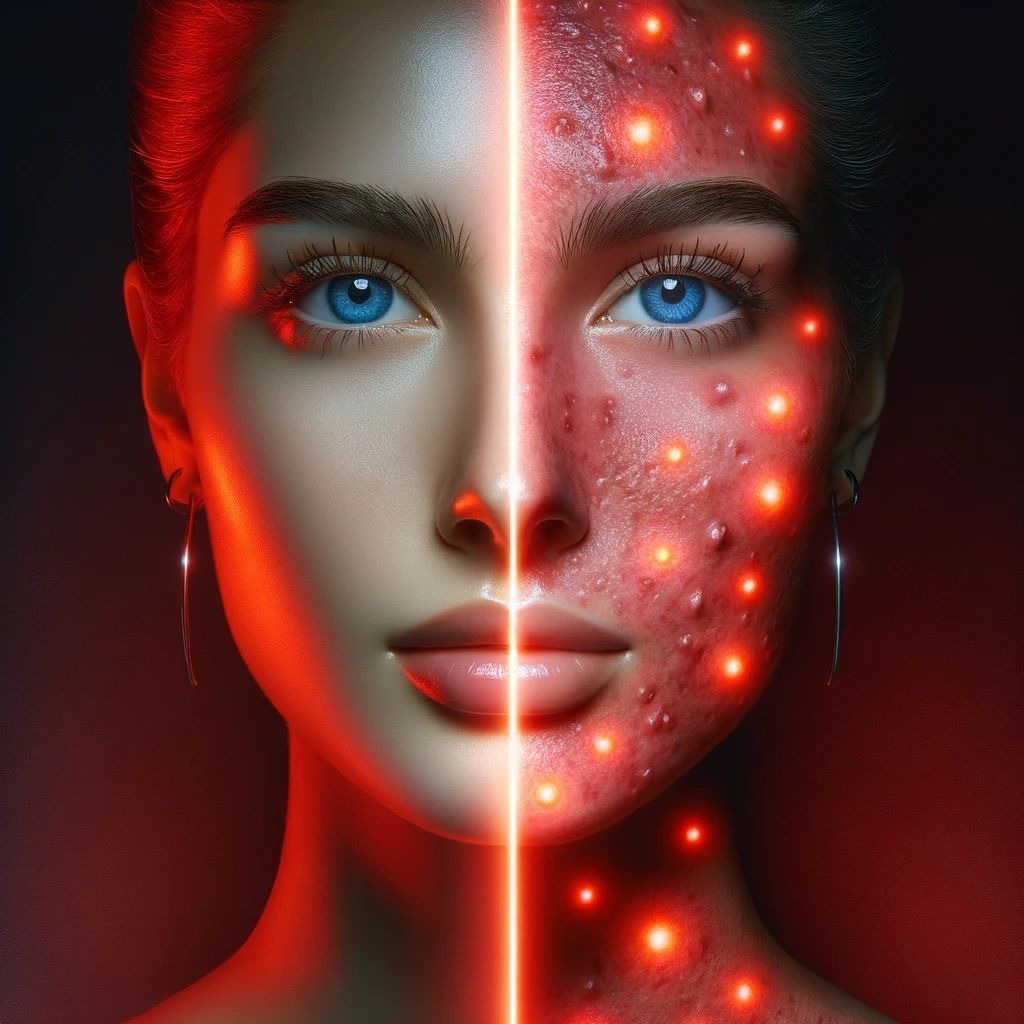
In the quest for clear, vibrant skin, Redjuvenate Medical is leading the charge with an innovative solution that’s garnering attention. The NovoThor whole body red light treatment, available exclusively at our London clinic, offers a groundbreaking approach to combating acne, a concern that affects millions in the UK and beyond. But what sets red light therapy apart in the realm of skincare? The magic lies in its mechanism. This therapy utilizes specific wavelengths of red light to penetrate the skin deeply without causing damage. It boosts cellular energy, promoting healing and rejuvenation from within. Scientific studies reveal that red light therapy can reduce inflammation and bacteria—two primary culprits behind acne—offering a natural, non-invasive path to clearer skin. The benefits don’t stop at acne relief. Red light therapy has been shown to enhance collagen production, diminish signs of aging, and even alleviate muscle pain, showcasing its versatile therapeutic potential. Embrace the future of skincare with Redjuvenate Medical’s NovoThor treatment. Experience not just the transformative effects on acne but a holistic improvement in your skin’s health and vitality. Join us at our London clinic and witness the revolution in skincare. Share your journey and results using #RedjuvenateRevolution #ClearSkinAhead #NovoThorMagic. Let’s illuminate the path to wellness together.
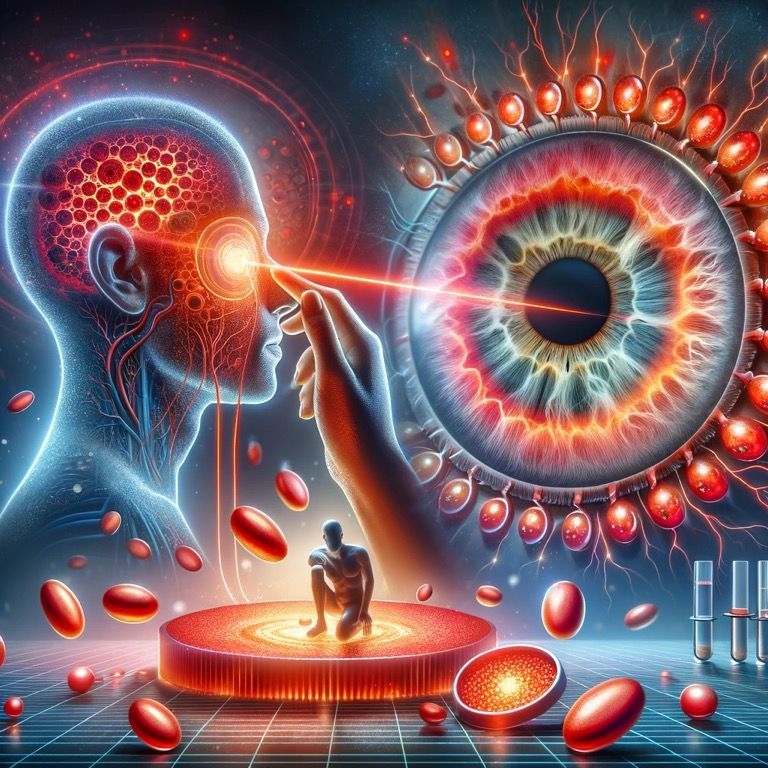
In the realm of eye health, a groundbreaking approach is gaining attention for its potential in combating age-related eye concerns. Red light therapy, a non-invasive treatment, is emerging as a beacon of hope, particularly in the fight against age-related macular degeneration (AMD) – a leading cause of vision loss as we age. At the forefront of this innovative therapy is Redjuvenate Medical’s NovoThor treatment, available at Clinicity in London. This whole-body red light therapy is not just a ray of hope for eye health, but a holistic wellness treatment with an array of therapeutic benefits. So, what makes red light therapy a game-changer for eye health? The science points to its ability to stimulate mitochondrial function, crucial in cell repair and regeneration. As our eyes age, mitochondrial efficiency diminishes, making them susceptible to conditions like AMD. By rejuvenating these cellular powerhouses, red light therapy offers a potential pathway to slow down, and possibly reverse, the effects of aging on the eyes. Moreover, NovoThor’s approach isn’t limited to eye health. Its benefits extend to improving skin health, reducing inflammation, and enhancing muscle recovery, making it a versatile addition to anyone’s wellness regime. As the population ages, the importance of innovative treatments like red light therapy becomes ever more crucial. By integrating NovoThor into your wellness plan, you’re not just taking a step towards preserving your vision; you’re embracing a holistic approach to health that benefits your entire body. In a landscape where cutting-edge treatments and preventative health measures are increasingly valued, Redjuvenate Medical stands out for its commitment to harnessing the power of red light therapy. To explore how NovoThor can illuminate your path to wellness, visit Clinicity in London. Let’s embrace this light at the end of the tunnel for eye health and beyond.

The realm of neurodegenerative disease treatment is witnessing a groundbreaking shift, thanks to the emerging potential of red and near-infrared light therapy. This progressive treatment, intrinsically linked with the Bredesen protocol, promises a new dawn for individuals grappling with neurodegenerative conditions. At Redjuvenate Medical, situated within the innovative CliniCity in London, we are proud to present our NovoThor whole-body red light treatment. Leveraging the therapeutic power of specific light wavelengths, NovoThor is demonstrating significant neuroprotective capabilities, aligning seamlessly with our commitment to advanced care in functional medicine. What sets this therapy apart? The answer lies in its ability to enhance mitochondrial function and energy production at a cellular level. In neurodegenerative diseases, where cellular energy is often compromised, this can mean a significant difference. By rejuvenating cell function, NovoThor offers a potential pathway to not only halt but potentially reverse the progression of conditions like Alzheimer’s and Parkinson’s. Beyond its neuroprotective properties, NovoThor stands out for its versatility. It’s an excellent tool for muscle recovery, inflammation reduction, and accelerated wound healing, making it a comprehensive treatment option. As Redjuvenate Medical strives to integrate such pioneering therapies, we reaffirm our dedication to leading the charge in functional medicine, bringing new hope and innovative treatments to our patients. Discover the transformative benefits of NovoThor red light therapy at CliniCity in London. Embark on a journey with us towards a brighter, healthier future. Together, let’s light the way to improved well-being.

At Clinicity, in the heart of London, a revolution in skin health is underway. It’s not just a trend; it’s a science-backed journey towards rejuvenation, harnessing the power of Red and Near-Infrared Light Therapy (RLT). We’re excited to share how this groundbreaking treatment is transforming skin care. What makes RLT at Clinicity a game-changer for skin health? It’s all in the wavelengths. Red and near-infrared light penetrate the skin at varying depths, working their magic at a cellular level. These light waves stimulate mitochondria, often referred to as the ‘powerhouses’ of our cells, enhancing their energy-producing capabilities. The result? A cascade of therapeutic benefits. RLT’s most notable triumph is its ability to promote collagen production, a key protein responsible for skin elasticity and youthfulness. This translates to reduced wrinkles, enhanced skin texture, and overall radiance. Furthermore, this therapy plays a pivotal role in wound healing and reducing inflammation, making it a versatile tool for various skin conditions. Our NovoThor treatment at Clinicity isn’t just about aesthetics; it’s a holistic approach to wellness. This full-body therapy goes beyond skin deep, offering benefits like muscle recovery, reduced joint pain, and improved circulation. We’re proud to offer this innovative treatment in London, a beacon of hope for those seeking not just beauty, but a healthier, more vibrant life. Join us at Clinicity to experience the future of skin care. We invite you to share your thoughts and experiences with RLT. Have you tried it yet? Let’s spread the word about this remarkable therapy. Remember, it’s not just a treatment; it’s a transformation.
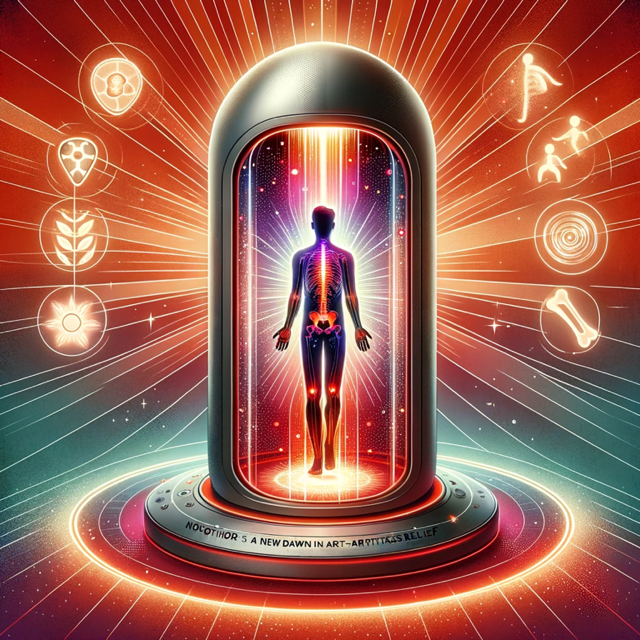
Arthritis can overshadow daily life, and traditional treatments don’t always offer lasting relief. Enter red and near-infrared light therapy, a scientifically backed approach gaining traction for its effectiveness against joint pain. At Clinicity, London, we’re proud to introduce the NovoThor Whole Body Red Light Treatment, a breakthrough in arthritis care. The Science of Healing Light This therapy utilizes specific light wavelengths absorbed by mitochondria in our cells, promoting inflammation reduction, pain relief, and accelerated tissue repair. It’s an innovative method rooted in real science, offering a new hope for those struggling with joint discomfort. Whole-Body Approach with NovoThor Clinicity’s NovoThor treatment stands out by offering a whole-body solution. Rather than targeting specific joints, it provides holistic relief. Its full-body application ensures comprehensive care, not just for arthritis but for overall well-being. Benefits Beyond Joint Pain Red light therapy goes beyond joint relief. It aids in muscle recovery, improves circulation, and enhances skin health, making NovoThor an all-encompassing wellness solution. Join Us at Clinicity We invite you to experience NovoThor’s transformative power at Clinicity. Whether it’s arthritis pain or a quest for overall health improvement, our team is ready to guide you. Share this article and spread the word about NovoThor at Clinicity. It’s not just a treatment; it’s a step towards a pain-free, healthier life.

In the competitive sports world, where recovery is as crucial as performance, red/near-infrared light therapy emerges as a groundbreaking treatment. Clinicity, London, proudly offers the NovoThor whole body red light treatment, a pioneering therapy for athletes and health enthusiasts alike. This therapy excels in enhancing circulation, boosting mitochondrial function, aiding detoxification, and accelerating muscle recovery. How does it work? Red/near-infrared light therapy stimulates vasodilation, increasing blood flow and delivering more oxygen and nutrients to muscle tissues. This is essential for both athletic performance and recovery. Mitochondria, the energy centers of our cells, are significantly supported by this therapy, enhancing energy production for endurance and strength. The therapy also improves waste removal from muscle cells, aiding in detoxification and reducing post-exercise soreness and fatigue. Furthermore, it speeds up muscle tissue repair, reducing inflammation and promoting cellular regeneration, allowing athletes to train more effectively and recover swiftly. But NovoThor at Clinicity isn’t just for athletes. It’s a haven for anyone pursuing general health benefits, from improved skin health to overall well-being. Safe and non-invasive, this therapy represents our dedication to innovative health solutions. Discover the transformative power of NovoThor at Clinicity, London. Embark on a journey to peak performance and health. Share this with friends to help them discover a brighter, healthier future.

Feeling tired has become so common amongst patients that the medical sector has developed our own acronym for it: TATT - tired all the time. A YouGov survey found that an incredible 25% of people feel tired all the time. In addition, 44% of people find themselves to be weary around ‘half of the time’. So if you find yourself feeling tired and exhausted all the time, you are not alone. Why are we all so tired? Some of the reasons we are all tired are obvious. As a society, we stay up late on too many nights, most of us work long hours, and some of us have young children who need us throughout the night. A new reason for our tiredness has emerged: long covid. Fatigue is the most common symptom of long covid. As long covid has become more widely recognised within the NHS, more research is being conducted into the symptoms and ways to treat them. Most people make a full recovery from long-covid in around 12 weeks, but coping with fatigue during this time can be challenging. Patients I have worked with have felt forced to leave their jobs, unable to make it through the day while feeling so tired. Others just simply aren’t performing the way they would want to. Why does Covid cause fatigue? Covid is a viral illness. Viral infections impact the mitochondria and manipulate them in a way that can lead to cell death. With the mitochondria being such an essential tool in generating our body’s energy, any virus that interferes with its function can cause fatigue and lethargy. Covid is no different to any other viral infection in that it impacts your mitochondria and your energy. Unfortunately, conventional medicine doesn’t have much to offer patients suffering from tiredness. If you are suffering badly, you may be referred for a basic assessment or cognitive behavioural therapy (CBT). With the NHS so stretched, you can expect to wait for quite some time before receiving these services you desperately need, just to stop feeling tired. What can I do? Before seeking treatment, there are several things you can do to try to optimise your recovery time overnight and reduce the fatigue you experience throughout the day. Optimise your sleep It seems obvious, I’m feeling tired so I should sleep more. But the time you spend in bed doesn’t necessarily equate to better sleep. We should be aiming for higher quality sleep. An essential step to optimising your sleep is timing. You should be aiming to sleep ideally by 10.00 pm. An old saying is that every hour of sleep before midnight is worth two after, and research shows this is true. A study by Exeter University showed that people who fell asleep between 10.00 pm and 10.59 pm have a lower risk of cardiovascular disease. When we sleep late, we experience increased inflammation problems and other issues that can affect body function and cause fatigue. It isn’t always possible to sleep at 10.00 pm, and your work schedule might make that impossible. The best alternative is to keep a one hour window in which you fall asleep. This regular sleep pattern helps to improve the health of your sleep and can reduce your overall fatigue. Optimise your nutrition Nutrition is often overlooked when it comes to sleep health, but a balanced diet doesn’t just affect how you perform during the day. Research is beginning to show a link between our nutrition and the quality of our sleep. Diets high in carbohydrates have been shown to increase the restlessness of your sleep and reduce the amount of time you spend in a deep sleep cycle. If you haven’t already, you should look to optimise your nutrition. Plenty of fruit and leafy vegetables will help you get the right balance of vitamins and nutrients you require. You should also try to avoid eating late at night and keep in mind that caffeine and spicy foods can make it harder to get to sleep. Understand your activity Unfortunately, when we are fatigued, we are less capable. It is vital to take note of all of our activities and create an altered lifestyle plan to ensure we are not pushing ourselves into further fatigue. I recommend keeping a journal of your daily activities, separating essential activities and what you can remove or reduce. Keep notes of how fatigued you feel and what changes based on what you add or remove from your activities. As your body starts to recover, you can gradually increase your strain, take longer runs, and have extra gym sessions. Reduce your stress Stress and sleep are two highly linked functions. When we are stressed, our sleep can be negatively impacted. When we don’t sleep enough, we tend to be affected more by stress. It is a vicious cycle. If you are fatigued, it is important to recognise that you need to change the daily stress you put yourself under. Try to reduce your stress where you can. Take on less at work until you feel recovered, try and scale back on any projects that will put you under more pressure. Once you have recovered from your fatigue, you will feel more energised and capable of taking on extra challenges. Red Light Therapy and fatigue Red light has a lower frequency than blue light and has been found to have the broadest range of therapeutic benefits. When using a full-body red light treatment machine, your entire skin is exposed to low levels of red and near-infrared light. Isolating this spectrum of light allows you to enjoy the benefits of the natural range of light found in sunlight without the damaging effects of ultraviolet rays, which can be harmful to your skin. There is growing evidence that a full-body red light treatment can play a significant role in helping your body to overcome fatigue. The red and near-infrared light penetrates the skin and targets the cells’ mitochondria. Your mitochondria are the body’s energy powerhouses. They are responsible for converting nutrients into chemical energy that fuels all of your bodily activity. Stimulating these powerhouses with red light can play a huge role in giving you the energy you are missing to get over your fatigue.

